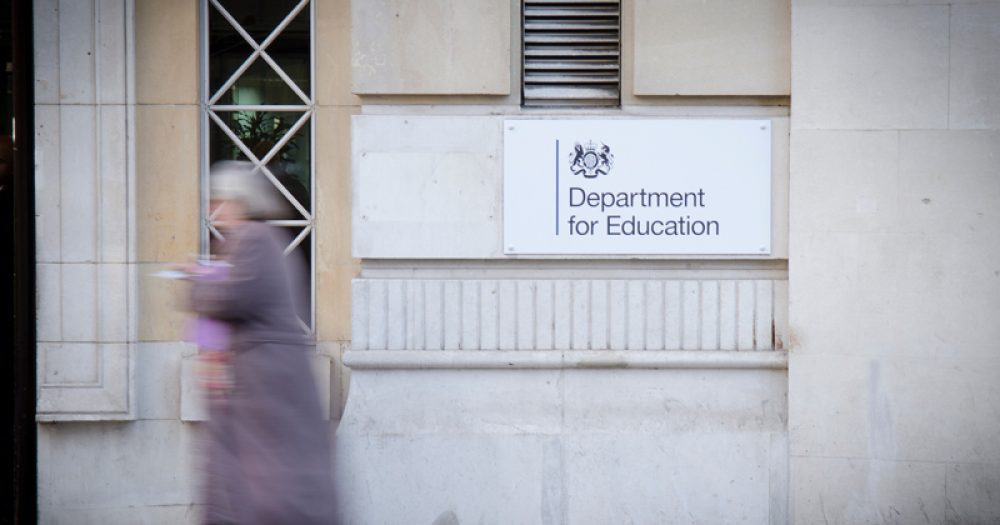A judge has hit out at expensive legal wrangling after ruling a regional school commissioner unlawfully approved an academy conversion that “curtailed” a council’s education provision review.
Hannah Woodhouse, RSC for the south west, granted Swanmead Community School, in Ilminster, permission to become an academy and join the Bridgwater and Taunton College Trust (BCT) in September.
Approval was given despite pleas from Somerset County Council to defer the decision until its ongoing review into the area’s “unviable” three-tier structure – of which Swanmead was the only non-academy middle school – had concluded.
Consultation, consensus and co-operation are far more likely to result in viable solutions
The council launched a judicial review saying the decision had “severely curtailed” its options to re-organise the education system across the Ilminster and Crewkerne region.
The Department for Education will now have to pay the council’s costs of up to £60,000, after the high court ruled the decision was unlawful.
The case is one of three judicial review proceedings relating to schools in the area.
The high court judge, Mr Justice Peter Fraser, issued a stinging verdict on those involved, saying it’s in “nobody’s interests for time, money and effort to be spent challenging one another in legal proceedings in this way”.
“It is certainly not in the interests of the children being educated in this part of Somerset, nor in the interest of all those involved in that important process, including staff and parents.”
He added that “consultation, consensus and co-operation are far more likely to result in viable solutions for education in this particular area than continuing conflict and yet more litigation”.
The council review was launched in early 2019 to consider the organisation of education due to problems with the current three-tier system.
The council said Swanmead’s academy application was “made specifically by that school to protect its own specific position within the review”.

Somerset said allowing the school, rated ‘good’ by Ofsted, to join BCT gave the trust a “legal veto over significant changes” across the whole area.
The department argued that Woodhouse could not be expected to delay the decision, adding this could have also potentially been subject to a judicial review.
But Fraser found Woodhouse (pictured), who made the decision during her first headteacher board meeting as an RSC, failed to have regard to the prejudicial impact of the academy order on the council review.
He said the RSC should have got feedback from BCT on the proposals, rather than “very general and inadequate inquiries”.
The judge also found there was “no adequate explanation” for why the decision was made when the council had started consultation on “detailed” proposals for change, nor why representations from other aggrieved schools “should have been ignored”. The review had cost the council £75,000.
But Fraser said the facts of the case were “highly unusual”, adding the outcome “should not be interpreted as granting carte-blanche to those wishing to challenge the making of academy orders generally, or to contain any finding that there is a general duty to give reasons whenever such an application is approved”.
To further complicate matters, the council had also issued a letter of claim under the judicial review pre-action protocol against a decision, at the same September RSC meeting, to allow another middle school – Maiden Beech – to join BCT. The school was already an academy, and the transfer was completed in December.
Fraser said the transfer was “during the pre-action protocol period which is, in my judgment, somewhat unseemly. It also potentially undermines the purpose of the judicial review pre-action protocol itself.”
This should not be interpreted as granting carte-blanche to those wishing to challenge academy orders
Meanwhile, BCT threatened a judicial review in April after the council allowed Hinton St George school to expand from accepting pupils in year 1 to 4 to include years 5 and 6. Hinton was a “feeder” school for Maiden Beech, which was now part of BCT.
Fraser said this had put some “flesh on the bones” of the council’s concerns about “co-operation (or more accurately, lack of it) being given by BCT in respect of structural changes”.
Faye Purbrick, Somerset council’s cabinet member for education, said they “want to make sure that we can bring the biggest educational benefits to families” in the area.
But Swanmead headteacher Mark Walker said the school had already started rebranding and pupils looking at new uniform.
“The school community is devastated,” he added. “Despite the fact government policy encourages schools to become academies and join Multi Academy Trusts (MATs), Swanmead is dumbfounded that they have not been allowed to do this and now need to consider what to do next with regard to this verdict.”
A DfE spokesperson said they “do not believe this process would have obstructed the local authority’s review of education provision”, and added they “welcome the council’s “renewed determination to reach a swift conclusion”.
In 2015, Pank Patel, the then regional schools commissioner for the west Midlands, allowed a school in Redditch to expand a two-tier school, despite concerns it would “decimate” the town’s three-tier system.
Last year the school consulted on reverting back to becoming a high school, saying it should have listened to the local community.








Your thoughts